‘Reject retrogressive stereotypes’
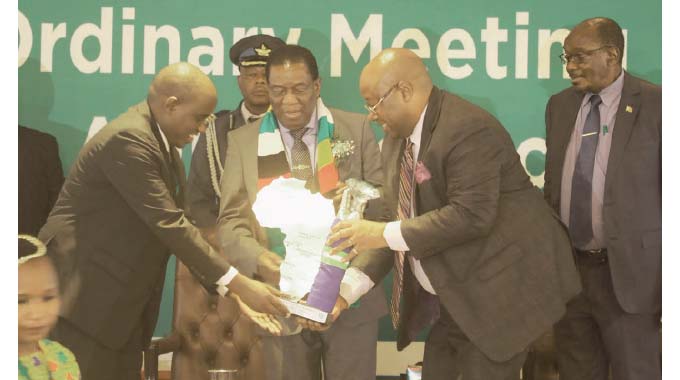
Prosper Ndlovu in Victoria Falls
AFRICA must boldly reject negative narratives bent on perpetuating retrogressive stereotypes about the region’s mining operations and economies in general by embracing value-addition and beneficiation to ensure higher global trade gains while maximising benefits for its people.
President Mnangagwa said this here yesterday as he officially opened the two-day 8th Ordinary Meeting of the African Diamond Producers Association (ADPA) Experts and Council of Ministers, which began on Tuesday.
Guided by the National Development Strategy (NDS1), Zimbabwe under the Second Republic is poised to realise the ambitious US$12 billion mining milestone by the end of this year from about US$2,1 billion annual earnings in 2017, and is on course to being an upper middle-class economy by 2030, said the President.

National Development Strategy 1 (NDS1)
The positive performance of the mining sector, including the diamond industry is expected to play a central role in the attainment of these targets, he added.
Moving into the future, President Mnangagwa said African regional member states should aggressively push for the solid growth of the mining sector, especially the precious minerals sub-sectors and leverage these to drive attainment of the aspirations set out in the African Union Agenda 2063 and global Sustainable Development Goals (SDGs).
Zimbabwe is one of the founding countries that make up the regional diamonds body, ADPA, and yesterday took over the chairmanship of the 19-member organisation while at the same time chairing the apex global diamonds body, the Kimberly Process Certification Scheme.
“I exhort us, as African stakeholders in the mining sector to reject the negative narrative, which seek to perpetuate retrogressive stereotypes about our mining sector and economies in general,” said President Mnangagwa.
“Guided by the AU Agenda 2063, we must remain committed to define and chart the course of Africa’s modernisation, industrialisation and development.
“Ultimately, it is us the people of this continent who have the responsibility to develop all sectors of our economies and improve the quality of life for the citizenry of Africa.”
Calling for the scaling up of higher value addition and beneficiation of Africa’s vast mineral resource base, the President said ADPA members, as producers of about 75 percent global diamond output must be heard louder and clearly within the Kimberly Process by speaking with one voice on the unique concerns of diamond producers in Africa.

Money – Image taken from Pixabay
“It is our expectation that diamond mining and processing sectors significantly contribute to sustainable economic growth of our African economies,” he said.
“Increasing the capabilities along the entire diamond value chain should be a key focus area. On your part as diamond producing countries, you are challenged to prioritise and scale up value addition and beneficiation going into the future.”
As the incoming chair of ADPA, he said Zimbabwe is determined to effectively coordinate and consolidate the work of the secretariat of ADPA and further called for crafting of deliberate policies that mainstream beneficiation of minerals for local benefits.
“The citizenry within ADPA countries must be empowered and facilitated to play a greater role in the diamond value chain,” said President Mnangagwa.

President Mnangagwa
“Our people, especially the youth and women should not be mere spectators but active participants in aspects of this strategic mining sub-sector.”
Zimbabwe is already strengthening capabilities in the diamond sector with the recent establishment of the Gemology Centre in Mutare expected to impact positively on the sector.
President Mnangagwa said the growth of the diamond sector must also result in Africa becoming both producer and consumer of diamond products, being reflected in higher earnings per capita by local citizens as evidence of enhanced economic development.
To consolidate higher local value from the sector, the President said it is for this reason that Zimbabwe has taken a bold decision to require mining houses to pay a percentage of the royalties and taxes in kind.
He commended the move by ADPA to allow the involvement of observers, stakeholders and civic society saying such an inclusive formation must enhance complementarity towards meeting the vision, plans and national interest of the region.
Reiterating the call for unconditional removal of sanctions imposed by the West, the President said unlocking mining sector growth in Zimbabwe and the region would care fare better without the embargo.
He encouraged adoption of innovative strategies by the sector to boost output while improving the welfare of workers, local communities and the country at large. This includes embracing emerging global best practices in the mining sector related to environmental, social and governance reporting.
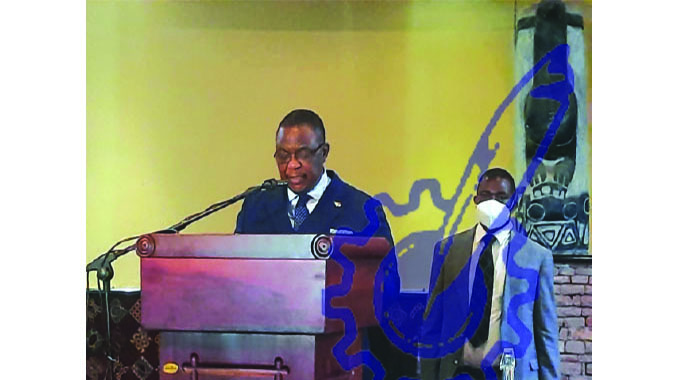
Vice-President Dr Constantino Chiwenga
“Together we can indeed achieve Africa’s mining vision of transparent, equitable and optimal exploitation of mineral resources for sustainable growth and socio-economic development,” he said.
Vice-President, Dr Constantino Chiwenga, who also attended the conference, said the platform was critical in helping Africa explore avenues of controlling the industry and ensuring maximum local benefits.
He commended the growth of the African diamonds sector and paid tribute to President Mnangagwa for promulgating Vision 2030, under which the domestic mining sector has to play a transformative role in boosting economic development. Zimbabwe is proud to be led by President Mnangagwa whose transformative leadership is guiding the country towards the desired developmental destiny, said Dr Chiwenga.
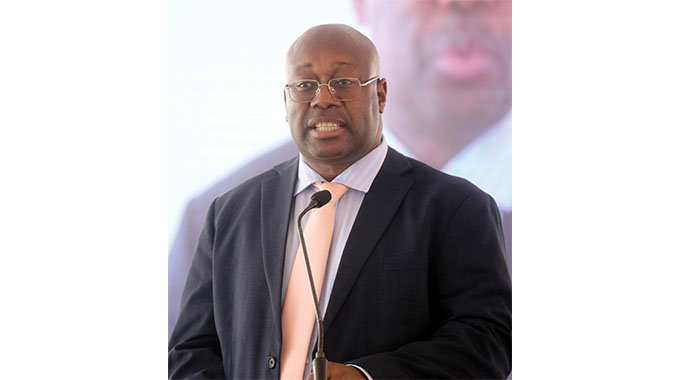
Minister of Mines and Mining Development Winston Chitando
Mines and Mining Development Minister, Winston Chitando, said the meeting was critical for ADPA to execute its mandate fully, and vowed to continue to steer the organisation forward, taking from where the outgoing chairperson left.
Minister Chitando said the Zimbabwe diamonds sector was growing faster with a target of six million carats output this year. Outgoing ADPA chair, who is also Tanzanian Minister of Minerals, Mr Doto Biteko, said he was pleased to hand over chairmanship of ADPA to his Zimbabwean counterpart, Minister Chitando. He recalled some of the strides achieved so far in transforming the diamond sector in the region with the view to impact positively on community development where mining operations are undertaken. Wishing Minister Chitando all the best ahead, he also paid tribute to member states for support during his tenure and urged them to continue to support the organisation and take its cause forward.
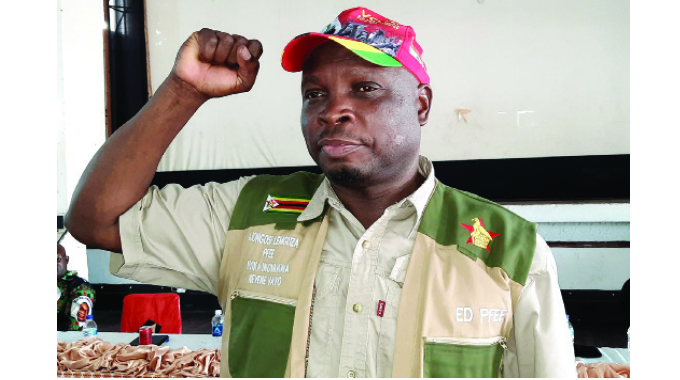
Cde Richard Moyo
Meanwhile, mining experts here have commended Zimbabwe’s leadership of both ADPA and KPCS as symbolic of the greater significance of the country status in the global mining community, and urged harnessing of more downstream value chain opportunities while ensuring the sector is not tainted by any associations with civil conflict, which tend to undermine human dignity, as well as adhering to environmental sustainability best practices.
Earlier, Matabeleland North Minister of State and Devolution, Richard Moyo, gave his welcome remarks in which he noted the importance of hosting the meeting in Matabeleland North as significant given the province’s central role to the mining sector.
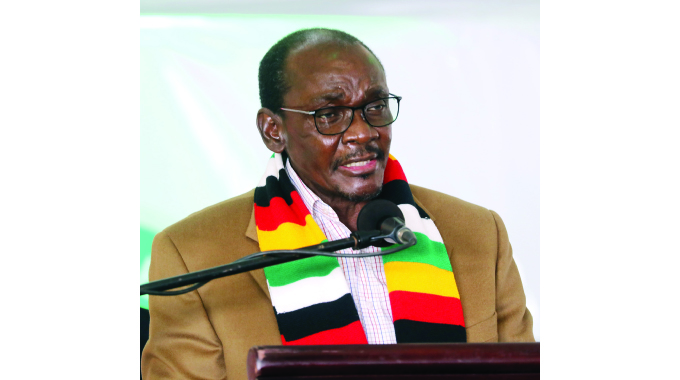
Cde Kembo Mohadi
In line with devolution, Moyo said his province was poised to contribute more to the US$12 billion mining milestone, especially from coal, tantalite, and lithium, among others.
“We are certain the mining sector target will be achieved,” said Minister Moyo.
Zanu-PF vice-president, Cde Kembo Mohadi, senior Government officials, local and international mining houses and experts, environmental activists, and local traditional leaders, attended the conference, which came to an end yesterday.


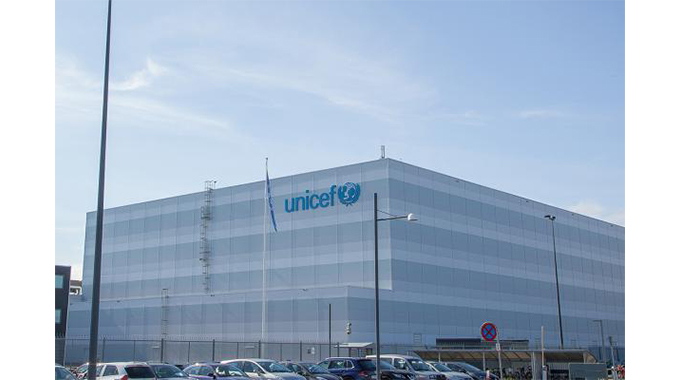
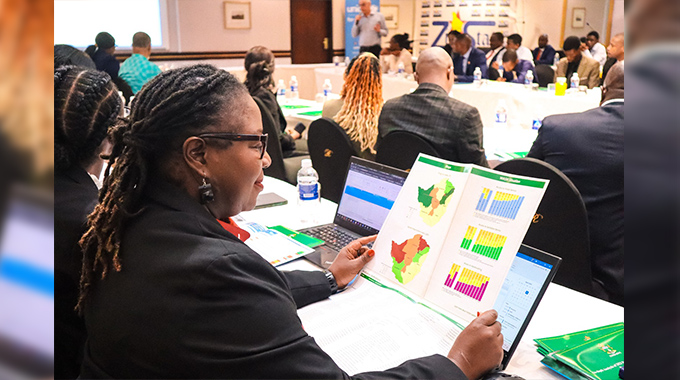
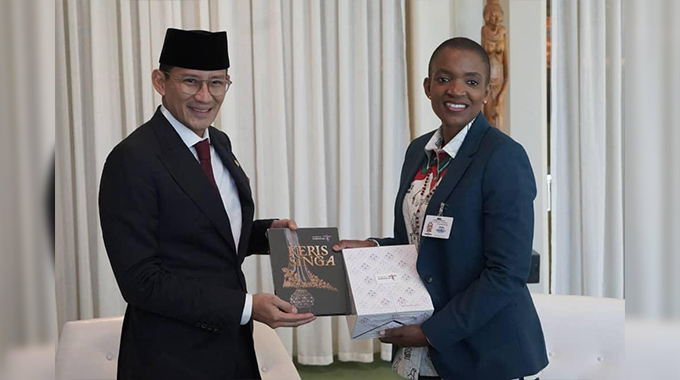





Comments